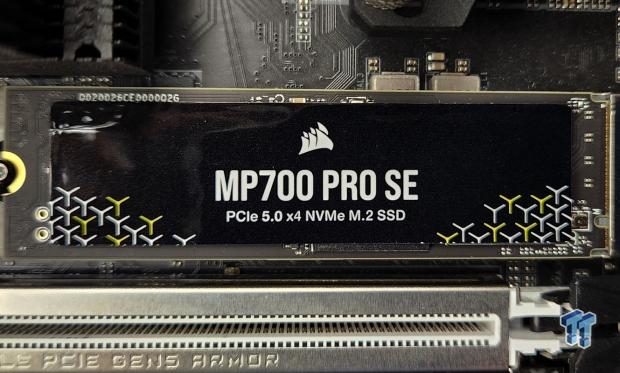
The Bottom Line
Pros
- + Gaming
- + Throughput
- + User experience
- + PS5 compatible
Cons
- - None
Should you buy it?
AvoidConsiderShortlistBuyIntroduction & Drive Details
The premium component and PC company Corsair has just launched its fastest PCIe Gen5 SSD - the MP700 Pro SE. This final form Phison-controlled speedster is based on Phison's Max14um version of its vaunted PS5026-E26 PCIe Gen5 x4 controller. Corsairs' flagship offering can essentially max out the PCIe Gen5 x4 interface, offering more than 14,000 MB/s sequential throughput. To date, no other controller has even come close to challenging it for performance supremacy.
As the successor to its MP700 Pro series launched late last year, the SE version needs faster hardware if it's going to exceed what its 12,400 MB/s capable predecessor has to offer. The MP700 Pro SE's throughput increase to 14,000 MB/s is made possible mostly by its faster 2,400MT flash array, with the remainder coming from a bit of firmware tweaking from Phison's engineering team.
Now, this isn't the first time we've encountered this potent 4TB hardware combination. Back in January, we reviewed Sabrent's Rocket 5 4TB and just last month MSI's Spatium M580 4TB. Both ultra-high-capacity drives delivered more than 22K on our user experience chart, making them almost 10% more performant than the 12,000 MB/s class E26 drives. We expect the same from today's test subject.
As we've seen all along, as it relates to similar class/configured PCIe Gen5 SSDs, what separates them from one another is cooling or lack of cooling. They all have the same hardware being E26 controlled and arrayed with Micron B58R of various speeds, so they all perform similarly if they are on the same firmware revision.
While we can appreciate most of the innovative cooling solutions we encountered, we still prefer the bare drive over anything else. It's typically more affordable. It's typically adequately cooled by a Gen5 motherboard heatsink, and it can slot straight into a PlayStation 5 storage expansion slot without issue.
Now for those of you that prefer a factory installed cooler, Corsair has got you covered there as well. The MP700 Pro SE will have both air-cooled and water-cooled options in addition to a bare drive.
With 2,400 MT B58R behind Phison's Max14um E26 controller this is no doubt going to be fun, so let's dive right in and get some exact numbers for Corsair's 4TB MP700 Pro SE.
Drive Details
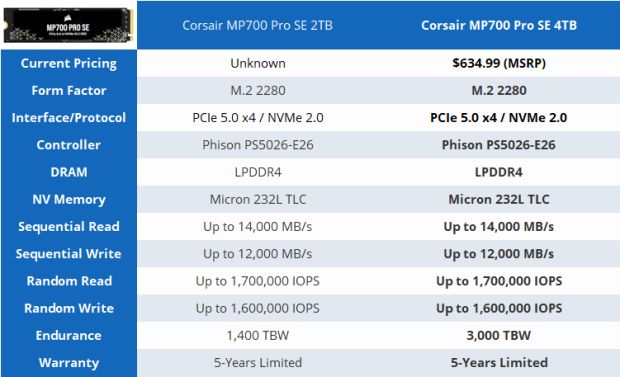
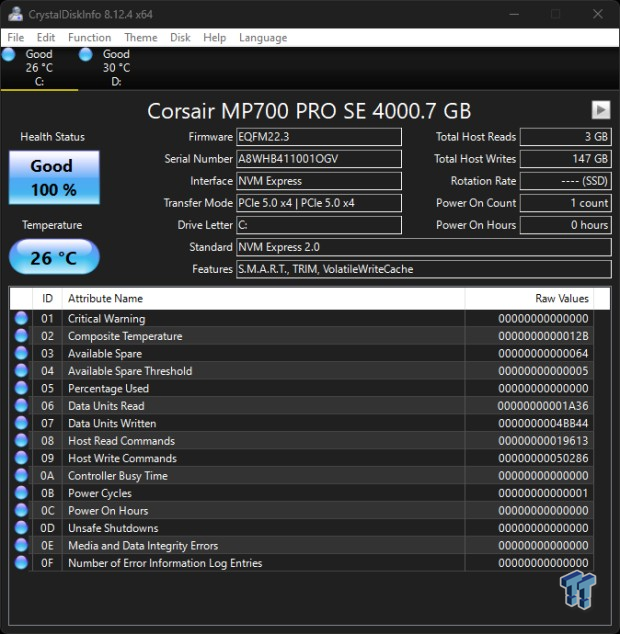
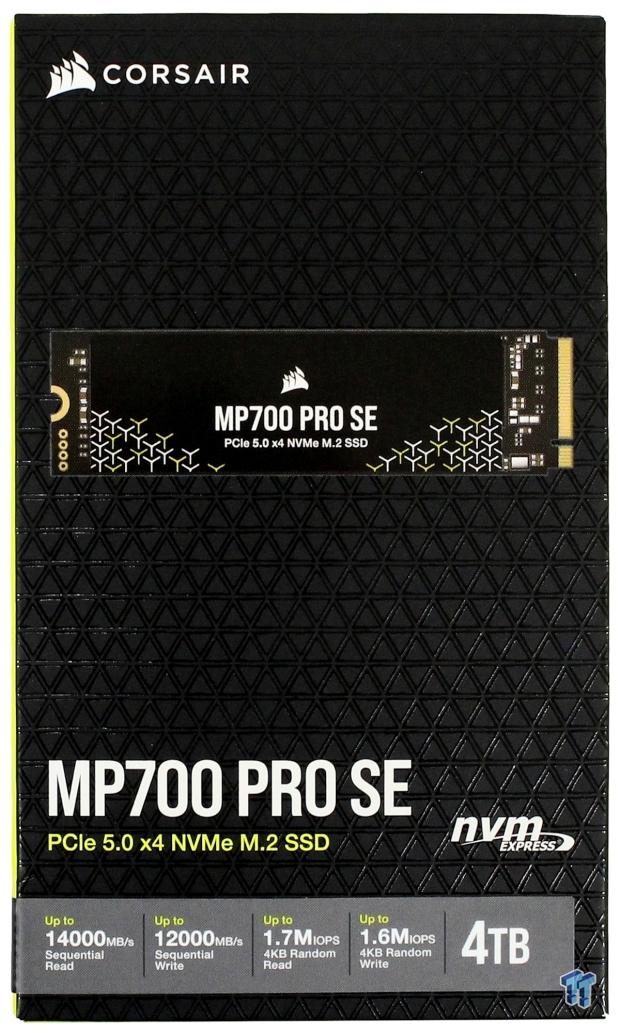
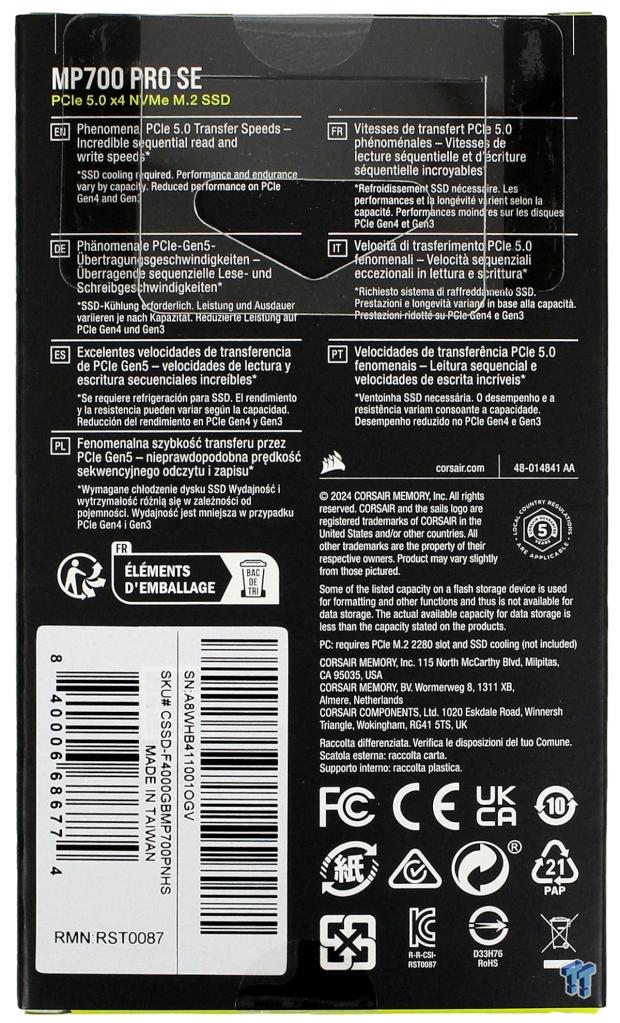


Corsair's fastest-ever PCIe Gen5 will be available in three configurations and 2 capacity points.

Variants will include the bare drive, drive with active heatsink, and a water-cooled option for those who want to include the SSD in their cooling loop.
Like all CORSAIR SSDs, the MP700 Pro SE is supported by free CORSAIR SSD Toolbox software, enabling convenient features such as secure erase and firmware updates directly from your desktop. Get it HERE.
Jon's Test System Specifications
Intel Test System
- Motherboard: GIGABYTE AORUS Z790 Xtreme X
- CPU: Intel Core i9-14900KS - Buy from Amazon
- Cooler: Alphacool Eissturm Hurricane Copper 45 - Buy from Amazon
- RAM: Patriot Viper Xtreme 5 8000 48GB - Buy from Amazon
- Graphics Card: MSI SUPRIM X RTX 3080 12GB - Buy from Amazon
- Case: PrimoChill's Praxis Wetbench - Buy from Amazon
- Power Supply: be quiet! Dark Power Pro 12 1200W - Buy from Amazon
- OS: Microsoft Windows 11 Pro 64-bit - Buy from Amazon
AMD Test System
- Motherboard: GIGABYTE X670E AORUS Master
- CPU: AMD Ryzen 9 7950X - Buy from Amazon
- Cooler: Alphacool Eissturm Hurricane Copper 45 - Buy from Amazon
- RAM: Sabrent Rocket DDR5 32GB - Buy from Amazon
- Graphics Card: MSI SUPRIM X RTX 3080 12GB - Buy from Amazon
- Case: PrimoChill's Praxis Wetbench - Buy from Amazon
- Power Supply: be quiet! Dark Power Pro 12 1200W - Buy from Amazon
- OS: Microsoft Windows 11 Pro 64-bit - Buy from Amazon
Because we at TweakTown like to be first at everything whenever we can, we will present our storage performance results for the test subject on both 14th Gen Intel and 7000 Series AMD platforms going forward for the foreseeable future. Because Intel still delivers the best real-world storage performance, (Look Here), our running chart will continue to be Intel-based until AMD can deliver better real-world storage performance than its rival.

Corsair MP700 PRO 4TB M.2 PCIe Gen5 x4 NVMe 2.0 SSD
Sony PlayStation 5 - M.2 Storage Expansion
PS5 Read Performance
With Sony's wildly popular PlayStation 5 console now enabled for M.2 NVMe SSDs to be used as fast storage expansion, we include results for PS5 compatible SSDs we test as a part of our reviews going forward.
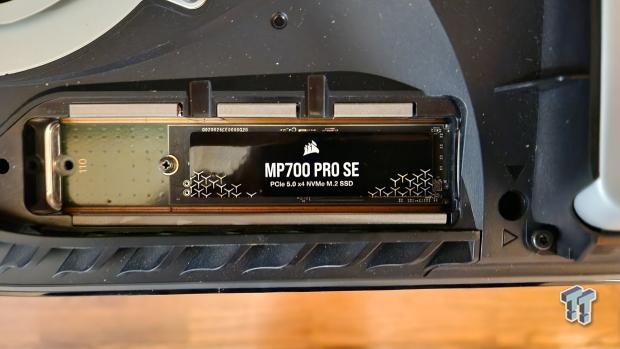
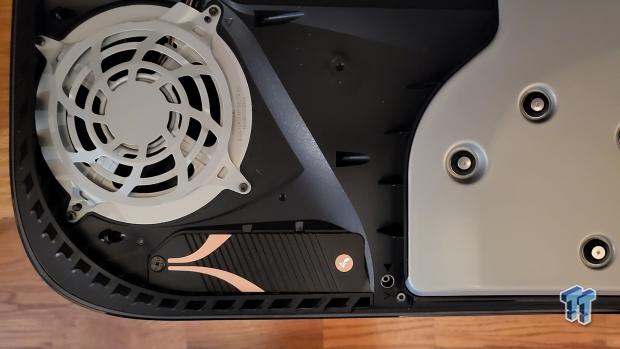
For SSDs that don't have an adequately sized PS5 compatible heatsink or other SSDs where the heatsink provided doesn't fit right and can be removed, we both use and recommend Sabrent's unparalleled PS5 heatsink available HERE.
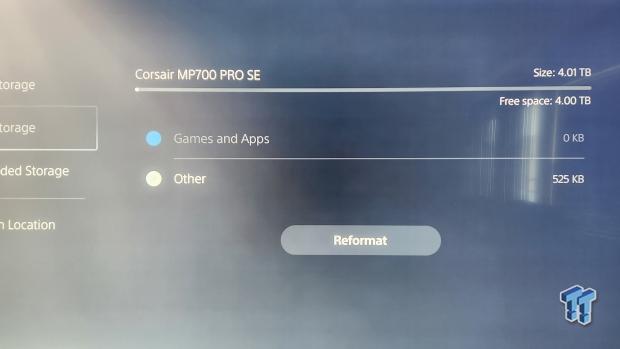
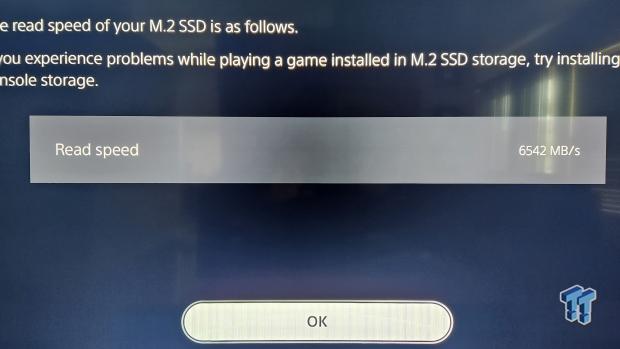
We only chart SSDs that can deliver a minimum of 5,500 MB/s read, which is Sony's original recommendation.
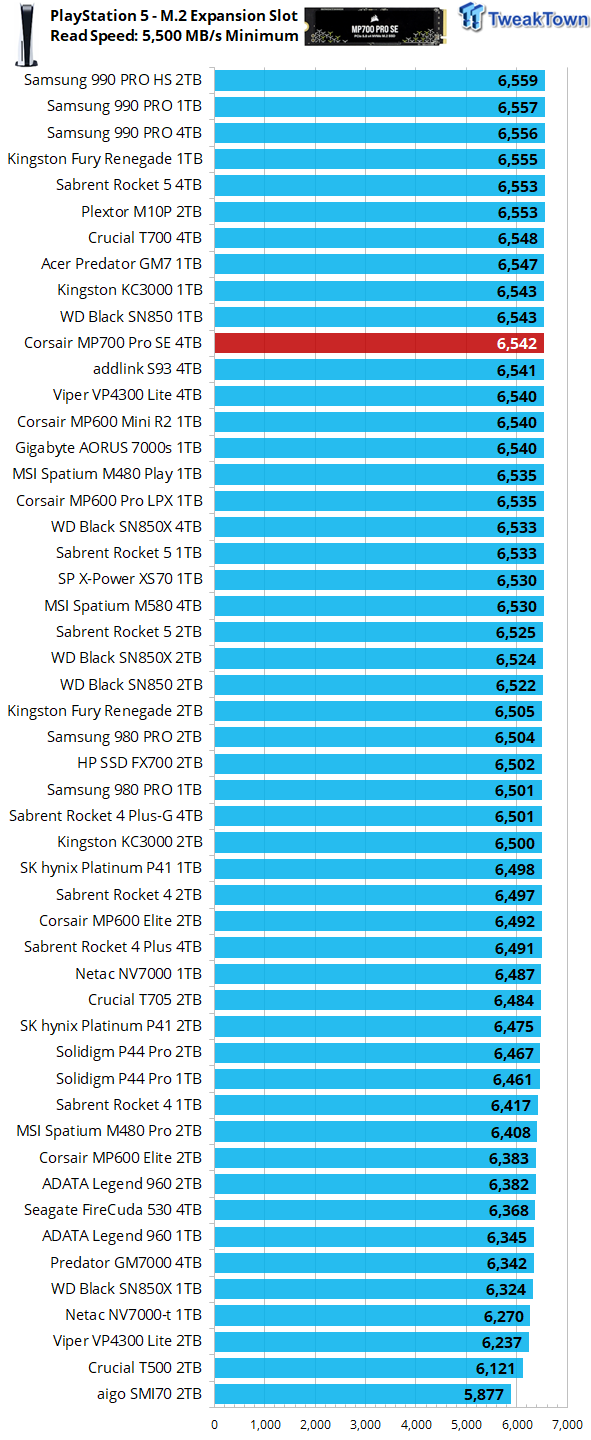
6,542 MB/s is right in there with the best of them, so it can serve brilliantly as PS5 storage expansion when used in conjunction with an aftermarket PS5 heatsink. This is another reason why we prefer the bare drive over factory-cooled options.
Synthetic Benchmarks: CDM, Anvil, ATTO
CrystalDiskMark
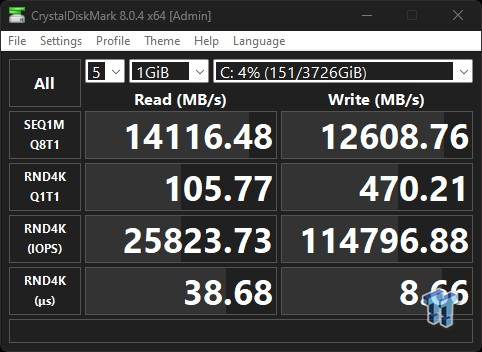
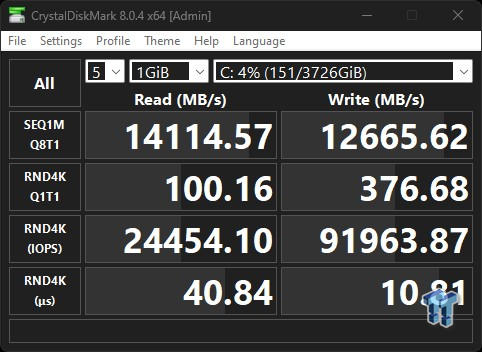
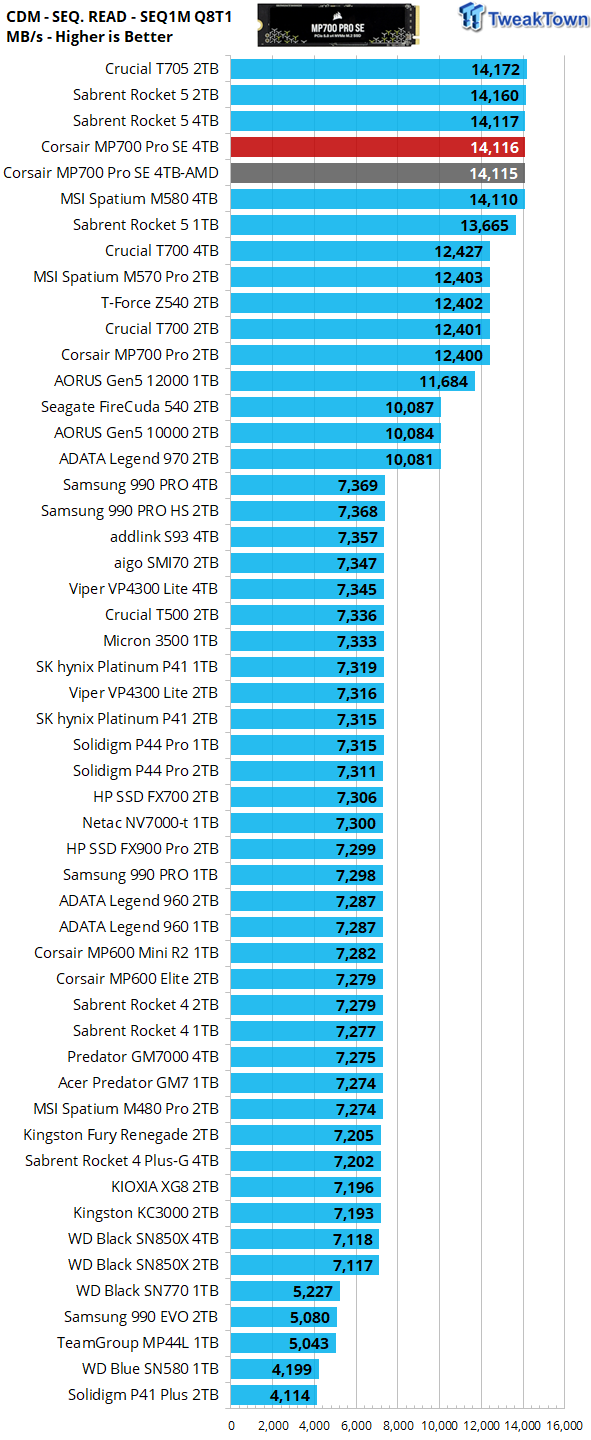
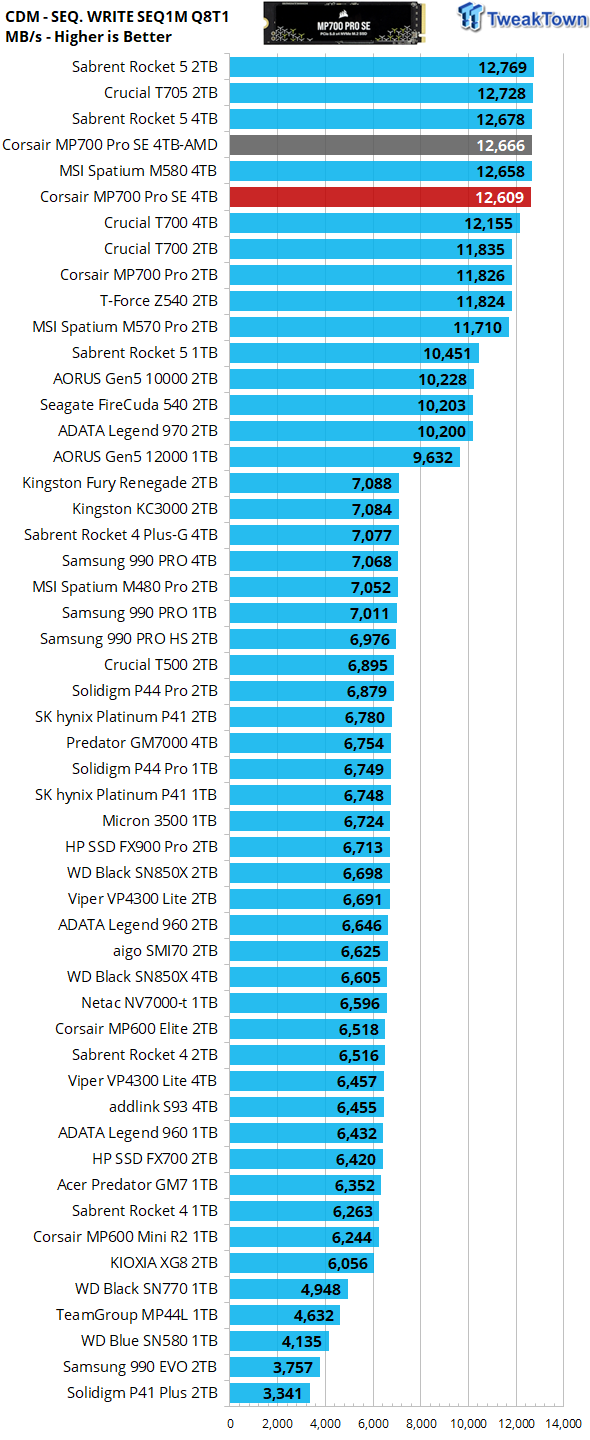
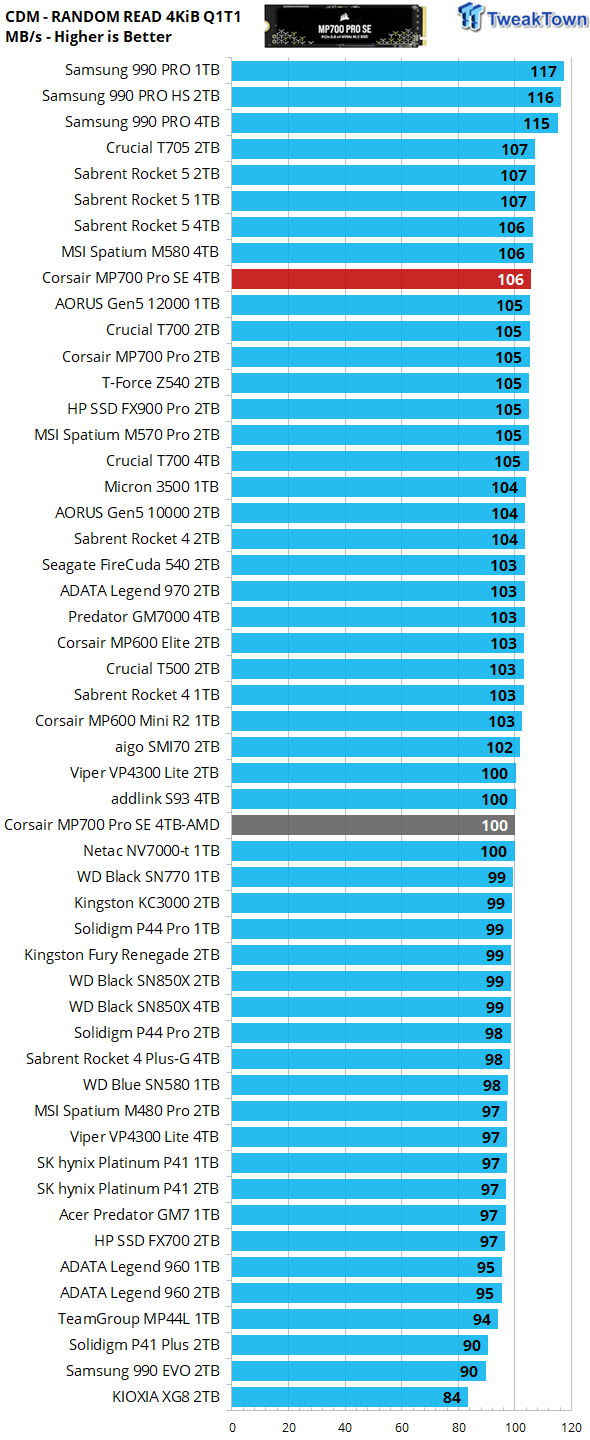
We employ CDM as our standard measurement for both sequential throughput and Q1T1 random read. In terms of sequential throughput, we find our test subject fully capable of meeting and or exceeding quoted up-to-factory throughput specifications. And with 106 MB/s 4K Q1T1 random read speed, our high-capacity performance juggernaut is sure to deliver some astounding real-world performance.
Anvil's Storage Utilities
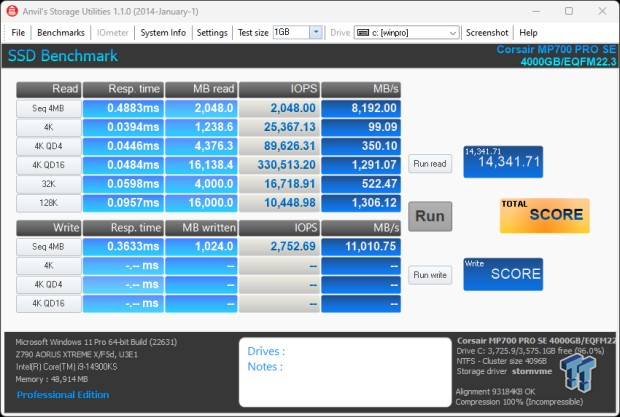
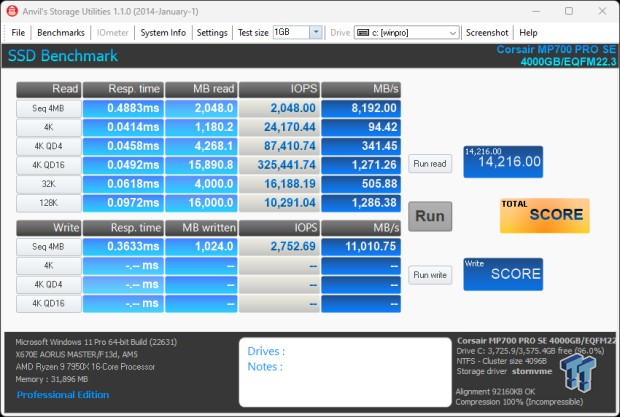
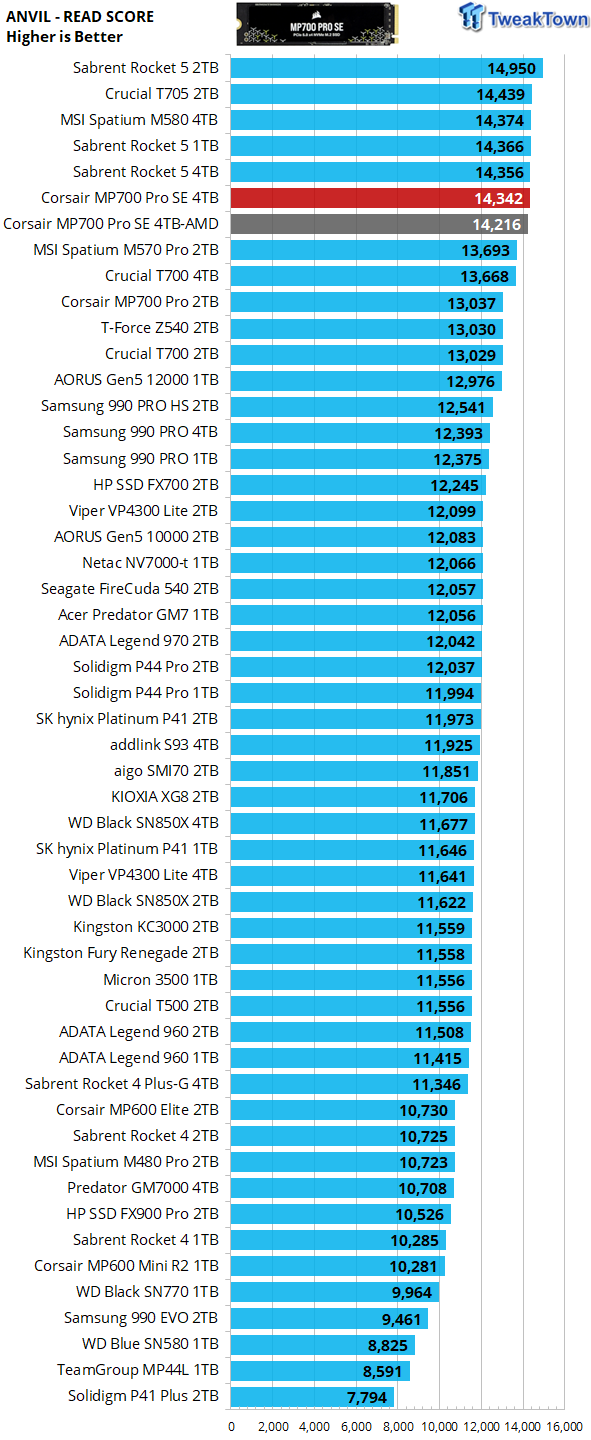
A read score of 14K plus here is currently only attainable with this exact hardware/firmware configuration. Impressive.
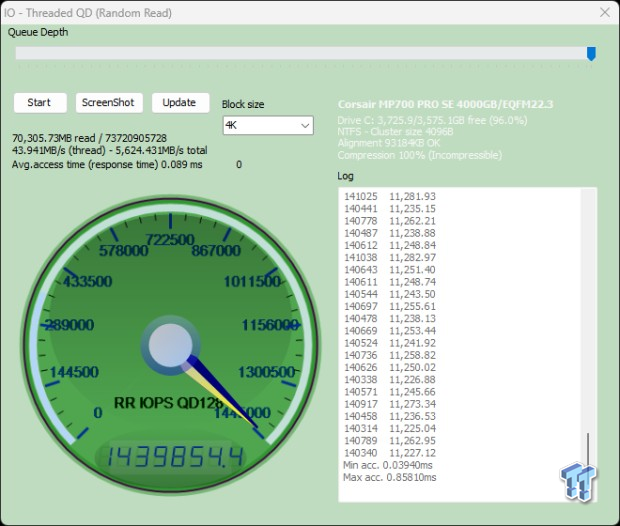
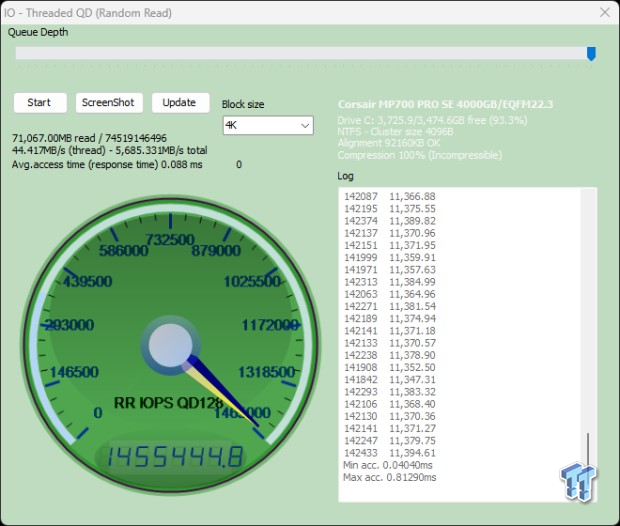
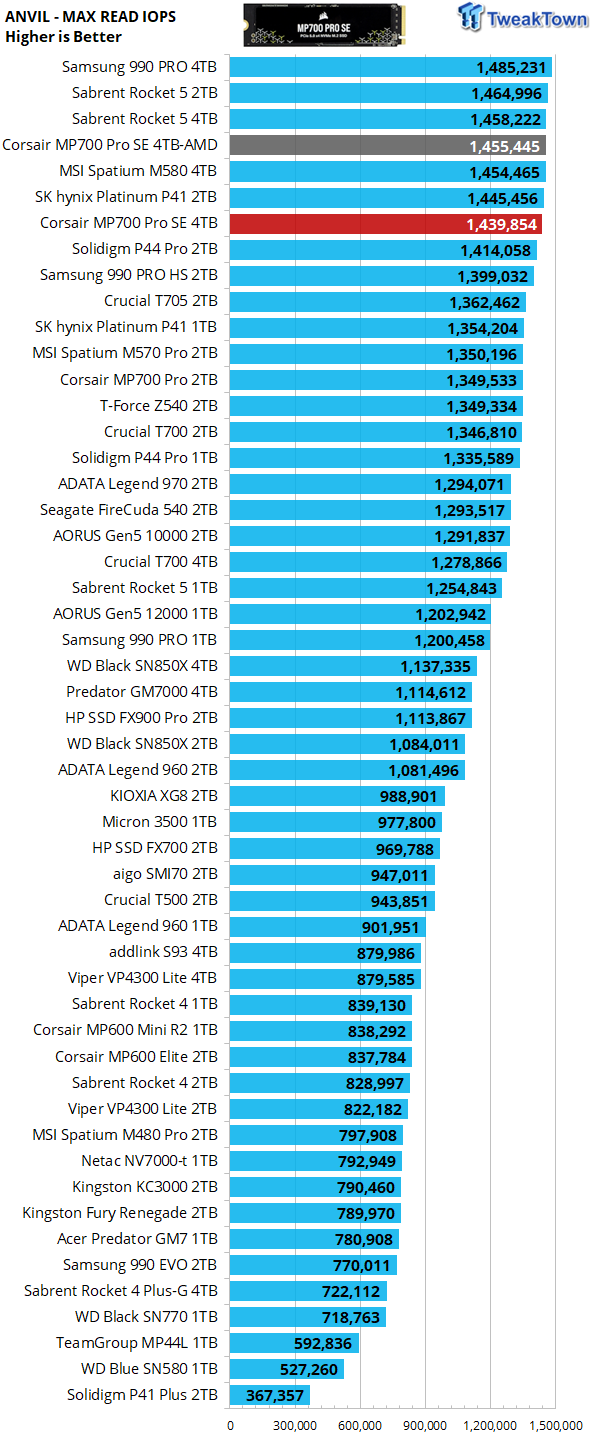
We employ Anvil's random read test as our standard for measuring max random read IOPS. This test is very accurate as it at its core is Iometer skinned over. We test at QD128. At 1.44 million RR IOPS, our capacious contender falls well short of its factory spec of 1.7 million IOPS, but most of that can be attributed to differing testing methodologies. Nevertheless, it still ranks up there with the best we've ever extracted.
ATTO
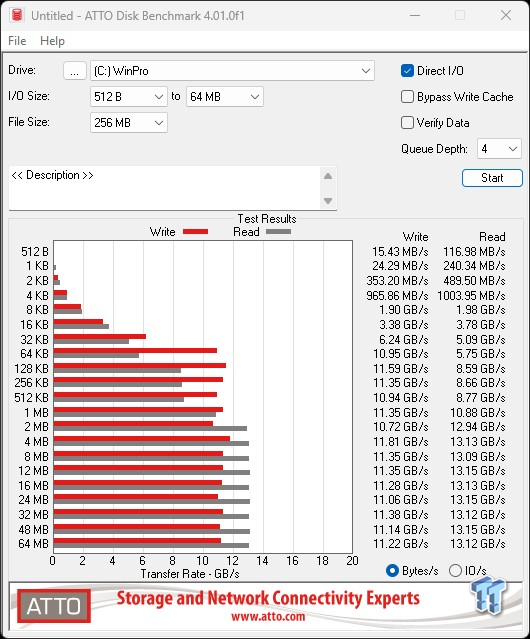
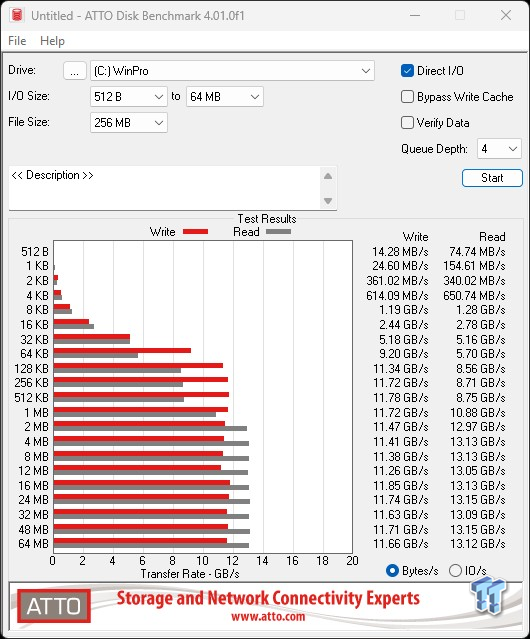
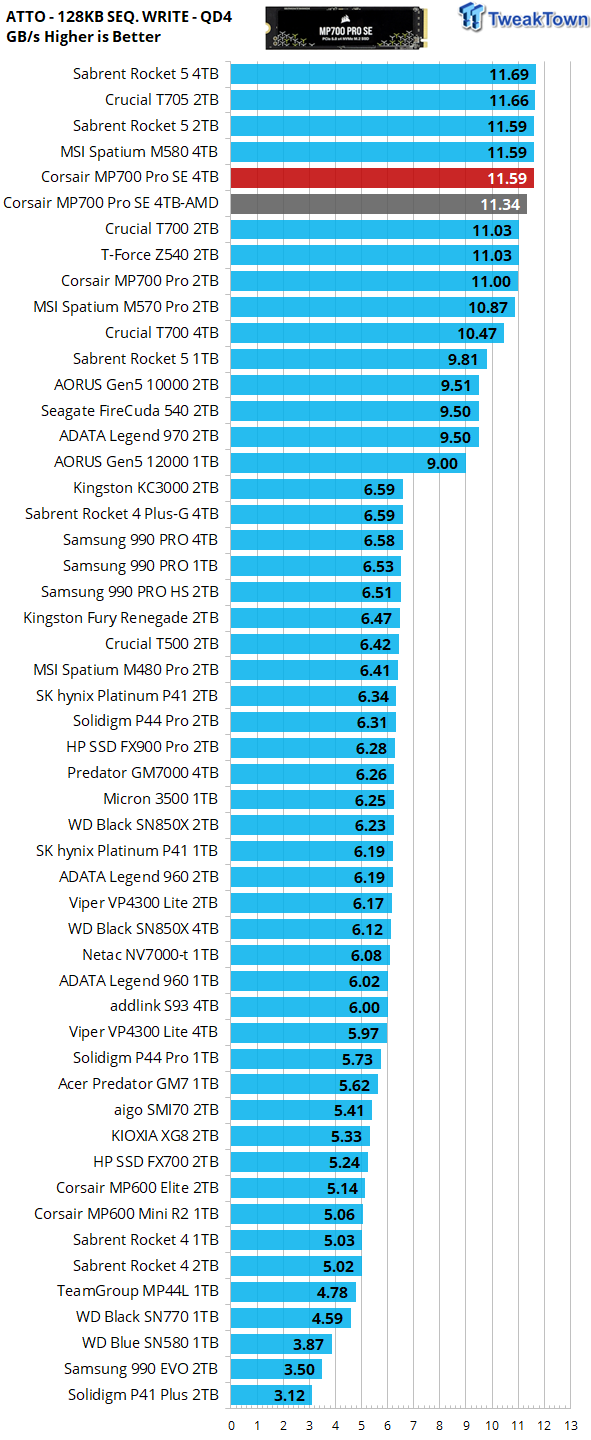
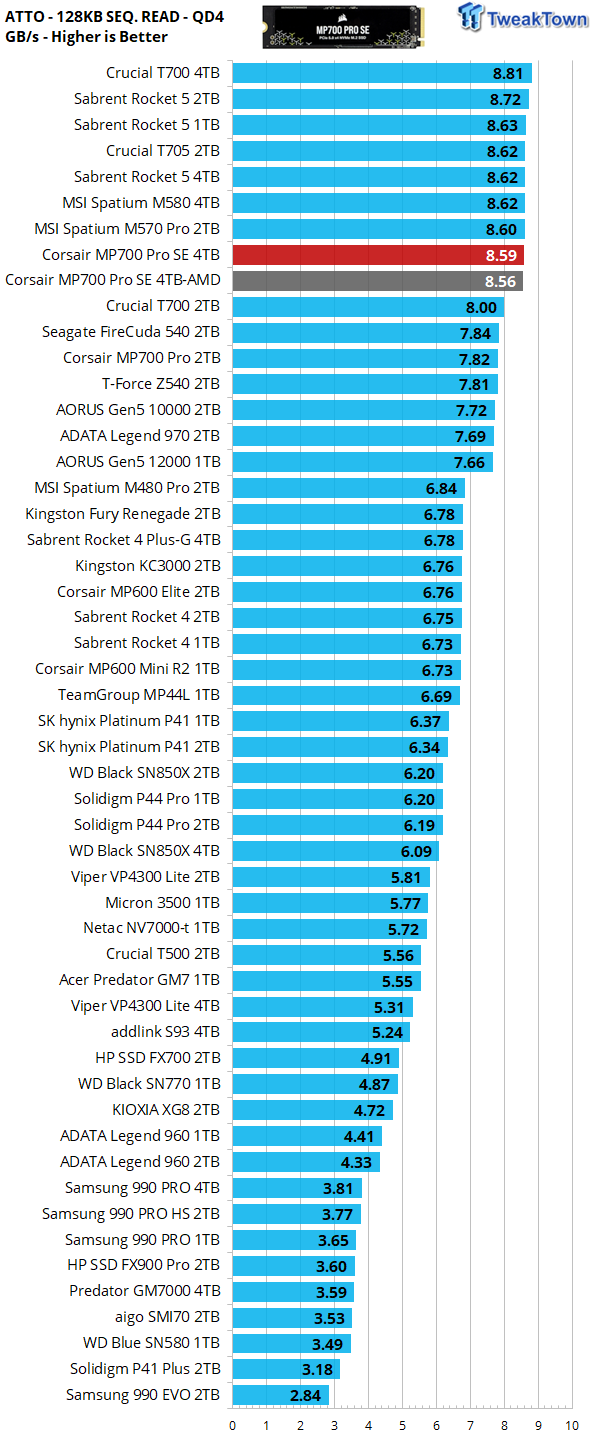
ATTO gives us a clear picture of what transfer sizes a particular SSD favors in terms of QD4 sequential throughput. We chart 128K transfers. At a queue depth of four, the MP700 Pro SE 4TB favors sequential transfers of 2MB or larger when serving data to the host (reading) and 128K or larger when programming (writing) data.
Real-World Testing: Transfers, 3DMark SSD Gaming Test, PCM10 Storage
Transfer Rates
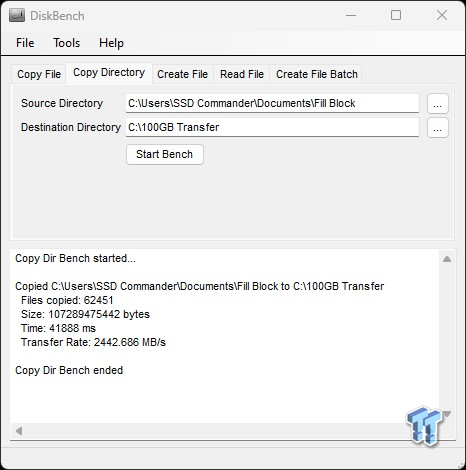
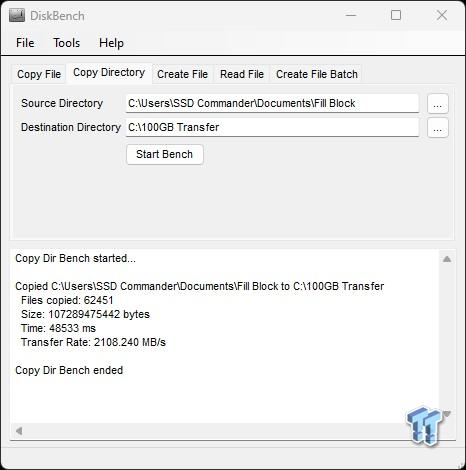
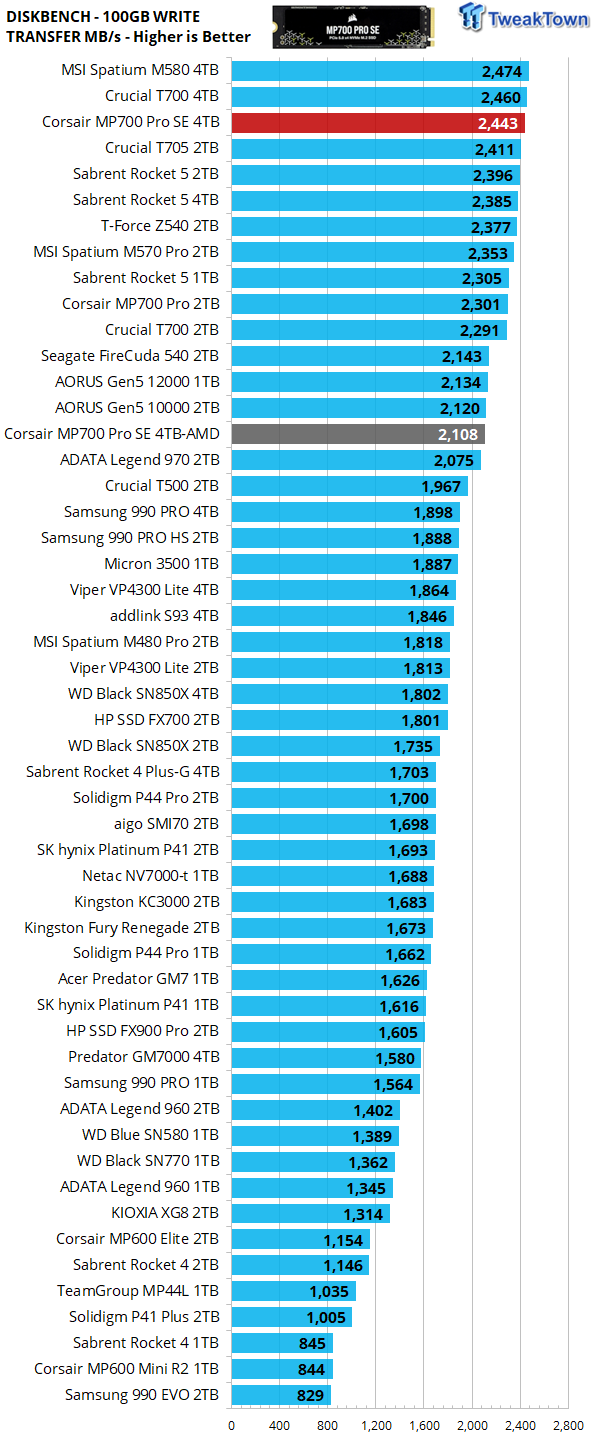
Our 100GB data transfer test is not your ordinary 100GB of data; ours is a crushing mix composed of more than 62K files. Write performance, random or sequential, is an infrequent operation, and as such, we do not consider it to be an important performance metric in the consumer space. An example being how many times is a game installed vs. how many times it's played. Although not an important metric, we are nonetheless impressed by our contender delivering the third-best result we've been able to extract.
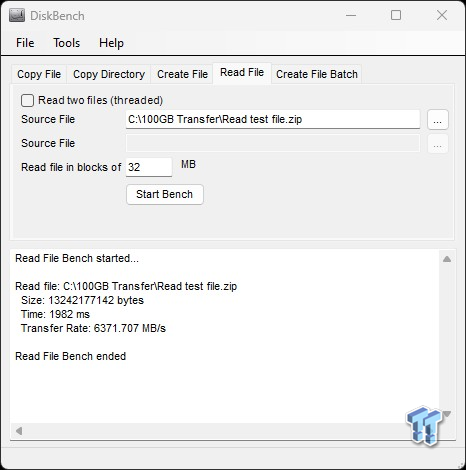
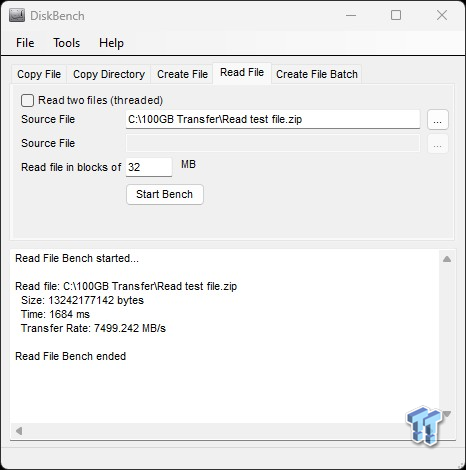
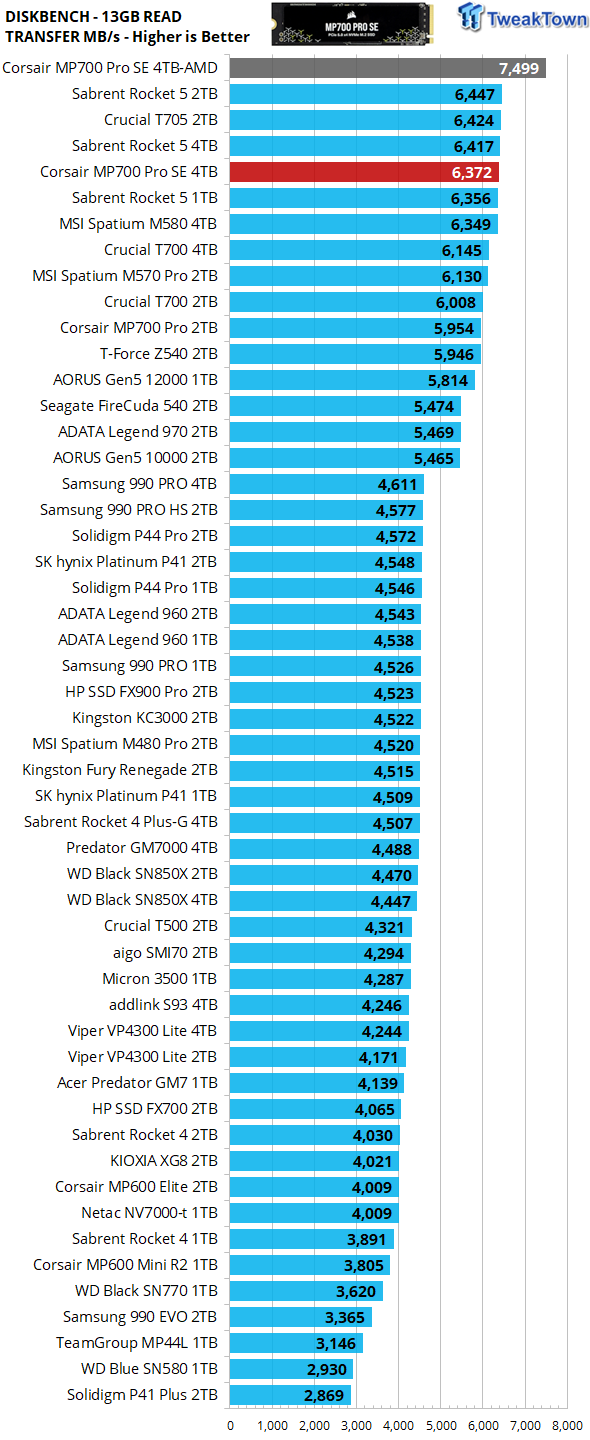
Unlike programming (writing) data, serving data to the host (reading) is typically an important performance metric as it relates to the consumer space. Second best ever for a 4TB SSD. Impressive.
3DMark SSD Gaming Test
UL's newest 3DMark SSD Gaming Test is the most comprehensive SSD gaming test ever devised. We consider it superior to testing against games themselves because, as a trace, it is much more consistent than variations that will occur between runs on the actual game itself. This test is the same as running the actual game, just without the inconsistencies inherent to application testing. In short, we believe that this is the world's best way to test an SSDs gaming prowess and accurately compare it against competing SSDs. The 3DMark SSD Gaming Test measures and scores the following:
- Loading Battlefield V from launch to the main menu.
- Loading Call of Duty Black Ops 4 from launch to the main menu.
- Loading Overwatch from launch to the main menu.
- Recording a 1080p gameplay video at 60 FPS with OBS (Open Broadcaster Software) while playing Overwatch.
- Installing The Outer Worlds from the Epic Games Launcher.
- Saving game progress in The Outer Worlds.
- Copying the Steam folder for Counter-Strike Global Offensive from an external SSD to the system drive.
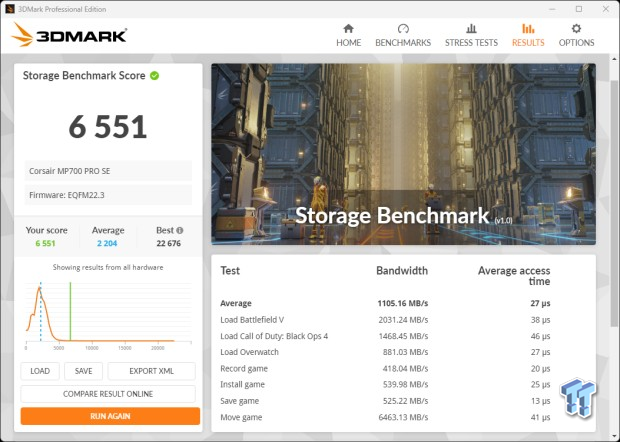
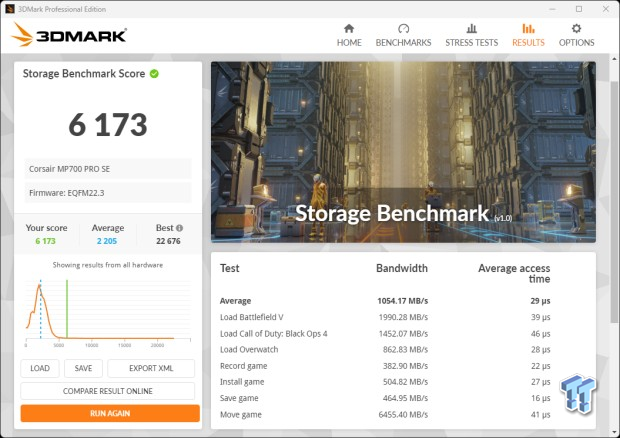
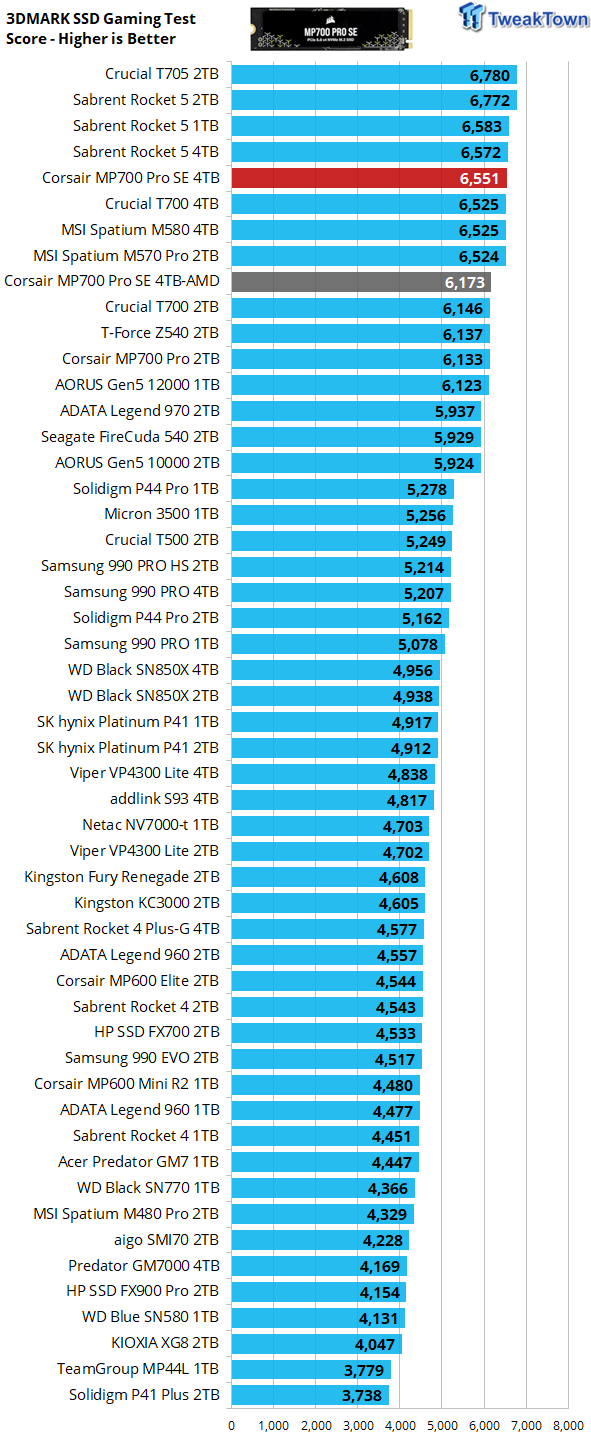
Gaming is a performance metric that matters to most DIY consumers, especially for the enthusiast crowd that TweakTown caters to. Now, we've reached the point where results start to matter, as they are a direct reflection of user experience. 6,500+ points here is the new standard in gaming performance, and it's currently only attainable with this hardware/firmware configuration.
Additionally, and worthy of mention here is that all E26-controlled SSDs come with Phison's exclusive I/O+ DirectStorage optimized technology baked right in. With it, a properly equipped PC with a DS-optimized game can load up to 60% more data with 99% less CPU utilization. This provides a high level of futureproofing for avid gamers. Do you want the best in high-capacity gaming storage? This is it right here.
PCM10 Storage Tests
PCMark 10 Storage Test is the most advanced and most accurate real-world consumer storage test ever made. There are four different tests you can choose from; we run two of them. The Full System Drive Benchmark and the Quick System Drive Benchmark. The Full System Drive Benchmark writes 204 GB of data over the duration of the test. These tests directly correlate with mainstream user experience.
PCMark 10 Full System Drive Benchmark
This test writes 204GB data and covers a broad range of common consumer tasks, including booting Windows 10, file transfers, Adobe and Office applications, and startup times for games including Battlefield V, COD Black Ops 4, and Overwatch. Unlike synthetic numbers, this is comprehensive real-world data which is why we use it to rank SSDs in terms of user experience.
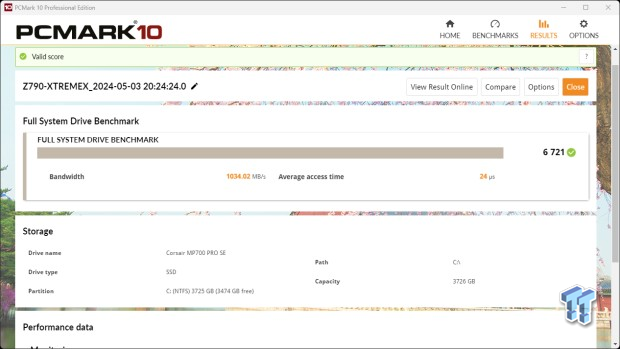
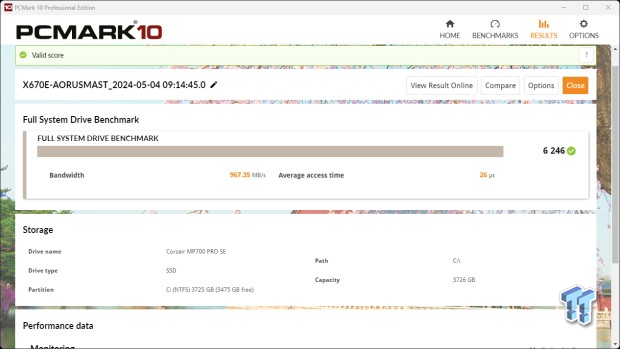
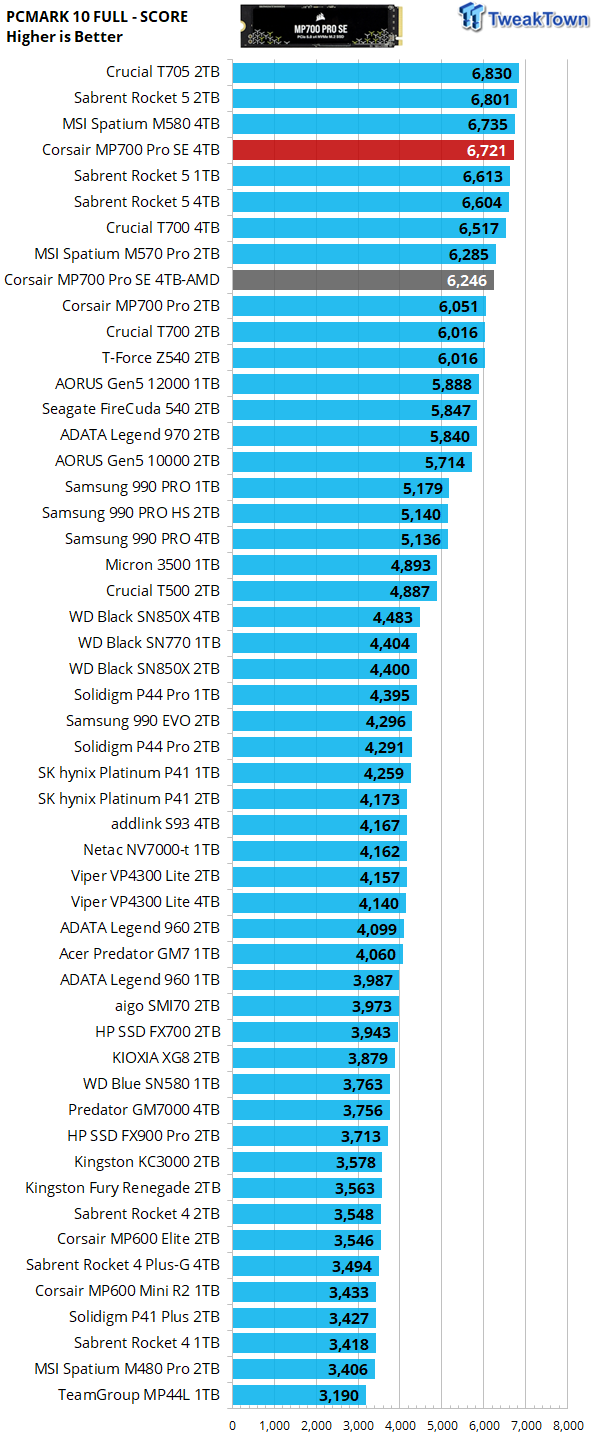
We consider a score of 6,500 or more here to be a milestone achievement. Our high-capacity contender delivers massively here with the second best score we've extracted from a 4TB SSD. Outstanding.
PCMark 10 Quick System Drive Benchmark
The Quick System Drive Benchmark writes 23 GB of data over the duration of the test.
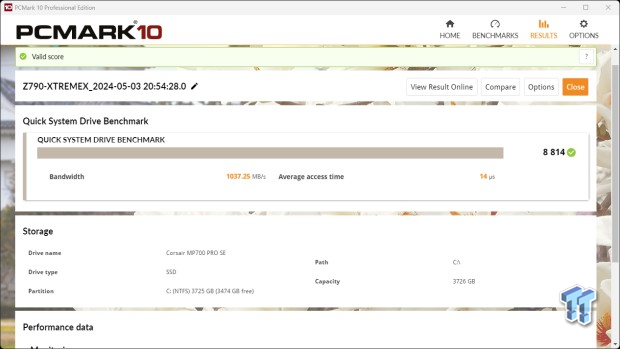
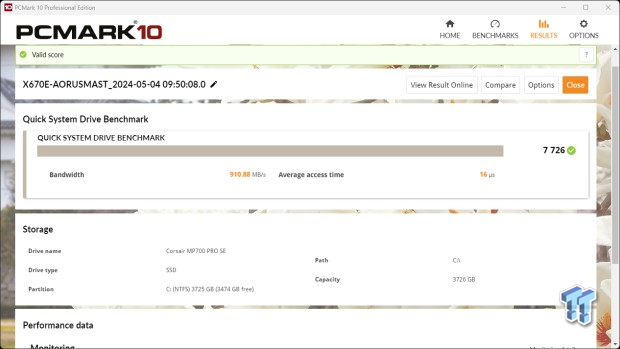
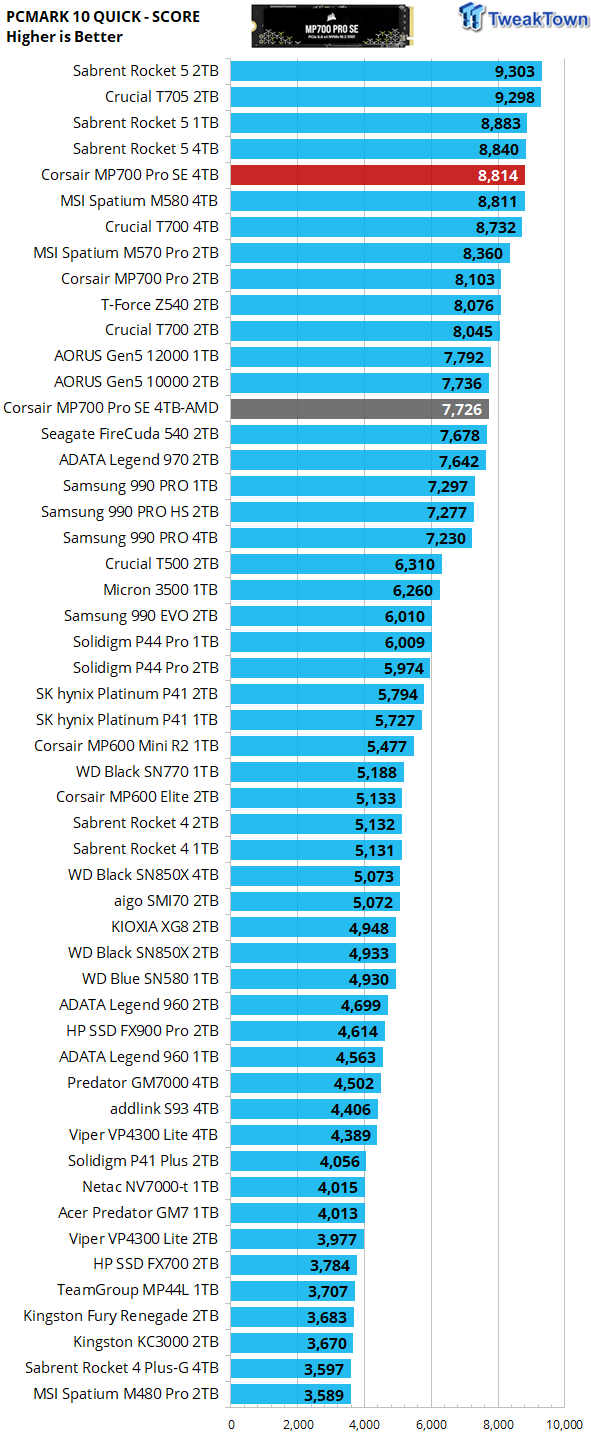
A score of 8,800+ here is exactly what we are looking for from a 4TB 14,000 MB/s capable SSD. This is maximum performance where it matters most. Impressive.
Final Thoughts
Corsair is delivering some of the finest SSDs in the world. Today's test subject is a testament to this fact. Its partnership with the world's leading controller company, Phison Electronics, is again paying dividends, as we just saw yesterday from the world's best-performing 2230 SSD - the Corsair MP600 Mini 2024 edition. With its MP700 Pro SE, Corsair is furthering its reputation as a premium brand. Additionally, we would note that with an MSRP of $635 for the 4TB MP700 Pro SE, the drive is priced considerably lower than what we've seen from the competition so far.
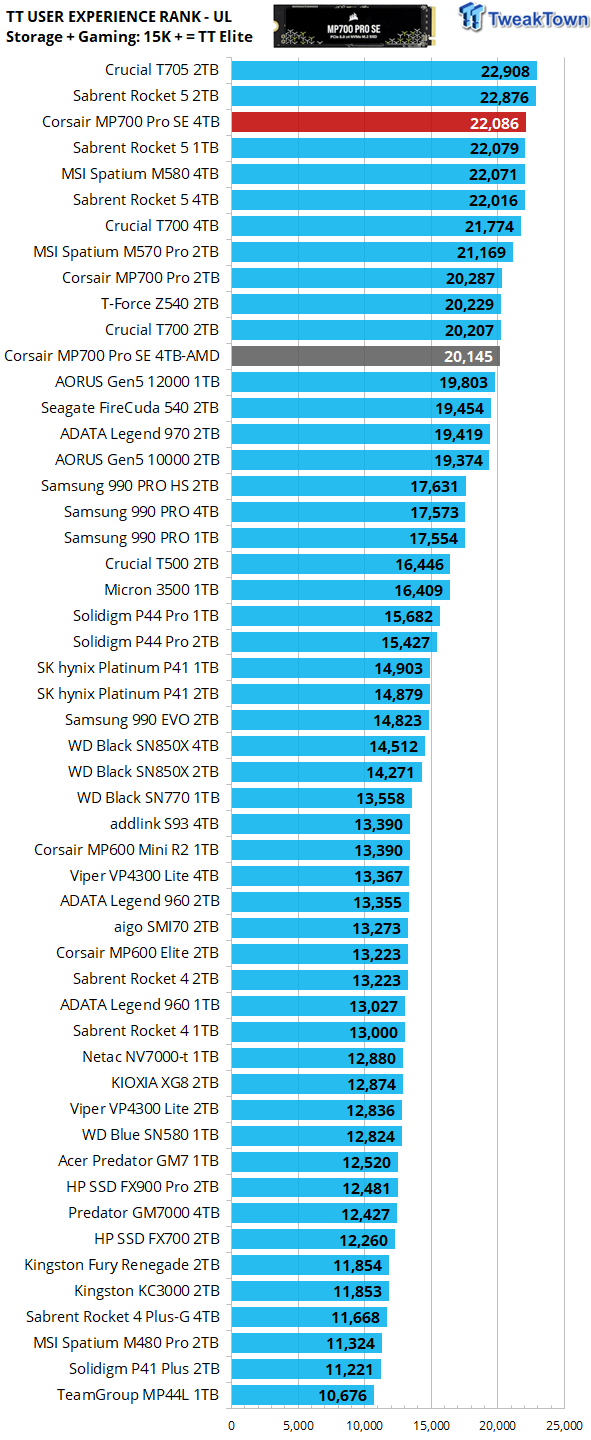
We rank SSDs in terms of overall user experience (performance where it matters most) as expressed by PCMark 10 storage and 3DMark gaming storage tests. Currently, we consider a user experience score of 15K or more to verify an SSD as a TweakTown Elite performer. With a score of 22,086, Corsair's MP700 Pro SE is the highest-performing 4TB SSD we've encountered and, overall, the third highest-performing SSD of all time. Impressive.
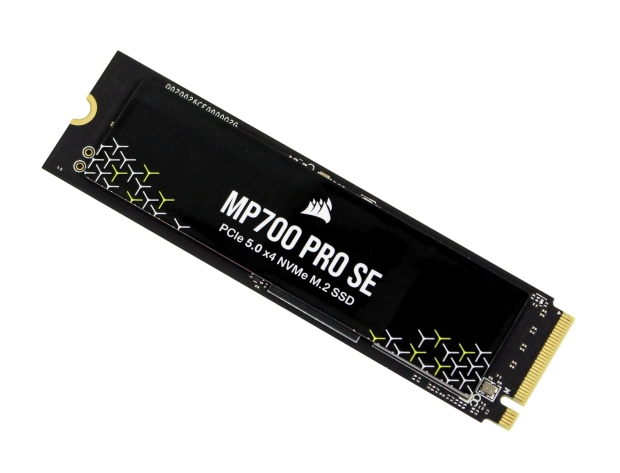
It's the highest-performing 4TB SSD we've ever tested and earned our highest award. Editor's Choice.

